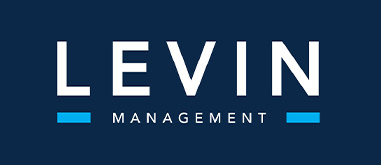Annual Outlook Survey Reflects Optimism Despite Inflation/Pricing Concerns
The coming year signals an opportunity for growth and strategic change for retailers in a moderating climate, according to Levin Management Corporation (LMC), which today released the findings of its annual Retail Sentiment Outlook Survey. Now in its 13th year, the poll asks retail store managers in the firm’s 125-property, more than 16 million-square-foot leasing and management portfolio about their performance, plans and expectations.
“Despite ongoing concerns tied to rising prices and economic uncertainty, our tenants are moving forward on the momentum of strong post-pandemic performance,” noted Matthew K. Harding, LMC’s chief executive officer. “There is room for them to grow, and opportunity for them to leverage the benefits of consumers’ love for the brick-and-mortar environment.”
More than 30% of LMC’s Outlook Survey respondents anticipate opening additional store locations in 2024 – the highest figure since 2017. This aligns with national trending, in which store openings continue to outpace closures.
The LMC survey also provides evidence that retailers recognize the importance of continually evolving in what has always been a mercurial industry. Nearly 45% of respondents said they have recently adapted or have plans to adapt their business model to maintain or improve their competitive advantage. Within that cohort:
- 4% note an increased focus on training and customer experience.
- 2% are offering new or updated customer loyalty/incentive programs.
- 3% have augmented their convenience-focused initiatives.
“Experience, convenience and loyalty incentives are the clear ‘secret sauces’ for retailers,” Harding noted. “These areas continually rate among their top priorities in our survey, punctuating the attributes that distinguish physical retail from its online counterpart. In fact, our survey participants ranked in-person customer service and support, and the social experience of in-person shopping as brick-and-mortar’s top advantages. What they are doing to evolve correlates directly.”
Additionally, more than 25% of those who are adapting reported rolling out a rebranding or branding refresh. “While not in the ‘top three’ adaptations, this is an impressive data point worth noting,” Harding said. “Brand transformations are enormous undertakings and show a true commitment to the future.”
A Return to Normalcy
The Outlook Survey asks retailers to compare their latest annual and holiday seasonal sales to the prior year. 64.8% of LMC survey respondents reported that 2023 annual sales volume met or exceeded 2022 levels, and 68% reported their holiday seasonal sales volume was the same or better year over year. While these figures top the survey’s trailing averages (61.3% and 65.9%, respectively), they reflect a dip from the past two Outlook surveys.
“After a couple of incredible growth years in this cyclical industry, some normalization is due,” Harding noted. “Still, our numbers show solid performance for a majority of our survey participants.” Forecasts and findings by industry leaders like the National Retail Federation mirror this sentiment, reporting continued sales growth, though at a slowing pace.
More evidence of a return to normal can be seen in staffing and labor. Currently, 41.5% of LMC respondents are hiring, down from 48.3% one year ago and 62.6% two years ago. Coupled with the most recent U.S. Bureau of Labor statistics, this is likely a sign that more retailers are fully staffed.
“This point is very good news following the extreme labor shortage the industry recently faced,” Harding said. “In August 2021, retail job openings peaked at nearly 1.3 million. The DOL’s most recent report of 616,000 openings in December shows this deficit cut in half and falls on the lower side of typical pre-pandemic numbers.”
Expectations and Drivers
Looking ahead, retailers’ overall sentiment regarding the coming year leans positive: 64.3% of LMC survey respondents are optimistic about their stores’ performance in 2024. Of the balance, feelings of uncertainty (21.6%) far outweigh pessimism (14.1%).
“Clearly, like all business sectors, retail is facing some unknowns and preparing for potential challenges in 2024,” Harding noted. “Our respondents cited inflation/rising prices and the economy/consumer confidence as the top drivers they believe may impact their sales levels this year. Yet all told, they are focusing on the ‘knowns’ over the unknowns and taking advantage of opportunities they can control to position themselves for success.”
For seven decades, North Plainfield, N.J.-based LMC has served as a trusted single- source commercial real estate services provider for institutional and private owners. The firm’s next Retail Sentiment surveys will be conducted in June and October, exploring technology trends and mid-year performance, and gauging expectations and plans for the holiday season, respectively. The award-winning survey program reflects the firm’s commitment to understanding issues and trends impacting retailers from a street-level perspective.

